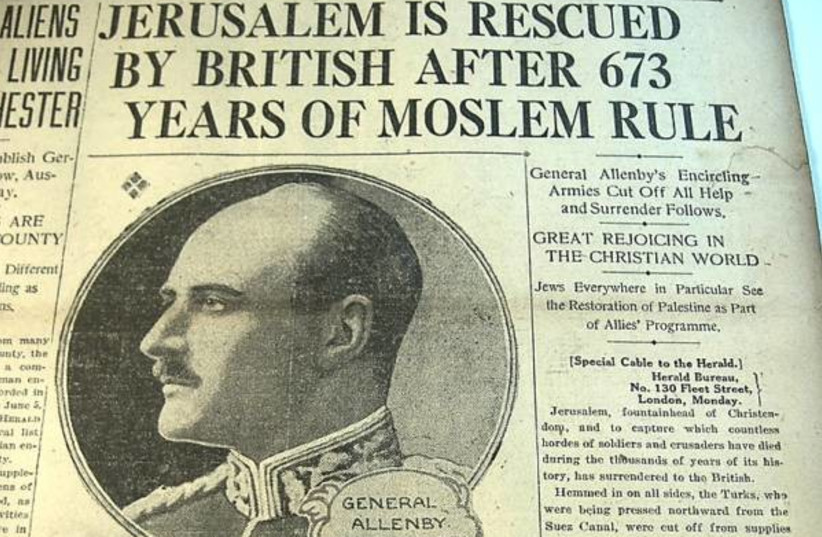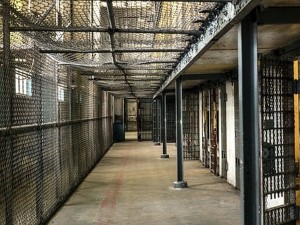Melanie Phillips: Double standard of anti-Semitism and Islamophobia
An assumption of just such moral equivalence was on display in the BBC report of the London bus attack. Even if its journalists genuinely thought they heard an anti-Muslim slur on the video, they nevertheless recklessly failed to verify such an explosive claim before transmitting it.Thomas Mann’s Philo-Semitism and Colm Toibin’s Thomas Mann
Their reasoning became clear from an interview with one of the journalists involved, who said that his team “thought it important to reflect there was abuse going both ways.”
In other words, they thought they needed to demonstrate a notion of balance. Yet it is only where an anti-Semitic attack is concerned that the BBC seems to think balance involves diminishing the significance of the attack by suggesting that its victims were morally culpable in some way.
Moreover, the BBC report involved a further double standard—for it described the visibly anti-Semitic attack as merely “allegations,” while the alleged anti-Muslim smear was presented as fact.
The West in general has a problem with acknowledging anti-Semitism. There are various reasons for this.
Unable to cope with the fact that the Holocaust took place in the epicenter of high European culture, the West tries to bury the persistent evidence that much of it still has an innate prejudice against the Jewish people.
Although the anti-Semitic far-right exists, much of today’s anti-Semitism comes from the left, which assumes itself to be the acme of virtue and therefore incapable of bad things, and from Muslims, whom the left deem to be victims and therefore incapable of bad things.
Moreover, admitting the enormity of anti-Semitism within the Muslim world would shatter the fiction Western liberals believe as unchallengeable truth that, in the Middle East, the Jews of Israel are human-rights abusers while Palestinian Muslims are their victims.
The worst reason of all is that those who think that claims of anti-Semitism are exaggerated do so because they believe that the Jews really do dominate the world through money, media and politics, and try to manipulate it in their own interests.
In other words, the double standard used to minimize or deny anti-Semitism is itself further evidence of the anti-Jewish feeling that so frighteningly continues to poison the West.
In January 1934, the Bavarian State Ministry of the Interior revoked the novelist Thomas Mann’s German citizenship, in part, because of his membership in the ‘German Committee Pro Palestine’ (‘Deutsches Komitee Pro Palästina’) and his support for its main goal, to sponsor the settlement of Jews in Palestine. Shalom Goldman, Professor of Religion at Middlebury College, is an avid reader of both Thomas Mann and Colm Toibin, the author of The Magician, a new novel about Mann. Goldman explains his disappointment with the novel.Why Josephus Matters
I have been reading and rereading Thomas Mann’s Joseph novels for over half a century. Like many others educated in the Yeshiva tradition, I delighted in Mann’s use of midrashim, the legends that supplement the spare narratives of the Bible. Mann accessed these legends through his own research, and through a network of European Jewish scholars he cultivated before he set to work on what would eventually be his four volume 1500-page magnum opus on Joseph – a quartet of books he dubbed his ‘pyramids.’
And I have been reading and admiring Colm Toibin’s novels – including The Master, his novel about Henry James – for over a decade. So it was with great anticipation that I looked forward to reading Toibin’s new novel about Thomas Mann, The Magician. Before its publication in September, I reread some of my favorite sections of the Joseph books, as well as all of The Magic Mountain, another Mann classic that has been a constant companion. I also looked again into a number of the excellent biographies of Mann that have appeared since his death in 1955, and it is these biographies that Toibin acknowledges in a note at the end of the novel, giving pride of place to Anthony Heilbut’s Thomas Mann: Eros and Literature, published in 1996.
Thomas Mann (1878-1955) was one of the great literary figures of the Twentieth Century. He wrote short stories, novels, and essays and was awarded the Nobel Prize in Literature in 1929.
Mann opposed the Nazis early on, left Germany when they rose to power, and used his considerable energies to oppose them.
If we leave biblical and New Testament authors out of the frame, Flavius Josephus (37–100+ CE) was the most consequential ancient writer in the West. This claim is not provable by statistics, but a process of elimination supports it. Plato was big, Aristotle too. Herodotus, Thucydides, Xenophon, and Polybius had their admirers, and every literate Roman knew Cicero and Livy. But Christian Crusaders did not take Plato into battle in the Holy Land. Thucydides was not rewritten in Latin and Hebrew versions, as Josephus was, amplifying his already huge impact. From the first to the twenty-first centuries, Josephus’ work has mattered to more people and more consistently than any other non-biblical text.
Does that mean that he should matter now? Nothing simply matters. Classical music, stock prices, and American politics matter to some but not others. Things that mattered to us when we were twenty might not at forty or sixty. To ask why Josephus matters is to ask, first, why he has mattered, and second, why he might matter from now on, which is not the same thing.
It is only worth discussing Josephus’ mattering if we know something of his life and writings. When he was born in Jerusalem (37 CE), to a member of the priestly caste named Mattityahu, an older brother had already scooped the father’s name and so he was called Yoseph, after a grandfather. Furnished with the gold-plated education enjoyed by Jerusalem’s elite, in both Hebrew and Greek literature, young Yoseph must have stood out. When he was just twenty-six, the city elders dispatched him on a delicate mission to Nero’s Rome. His task: to liberate three fellow-priests being held by the emperor. Nero, though he had already ruled for a decade, was only Yoseph’s age. After surviving a deadly shipwreck, Yoseph succeeded in his mission by scoring an introduction to Nero’s wife Poppaea. She won over her volatile husband, who had recently killed his mother and would soon dispatch her.
When Yoseph returned to Jerusalem, in 65/66 CE, he was distressed to find the city in commotion. Nero had recently sent a new official to coastal Caesarea with instructions to extract large sums from Jerusalem’s world-famous temple, using his locally recruited auxiliary force to crush any resistance. We cannot explore Nero’s reasons (his officials elsewhere had the same orders), or the origins of the war that this ignited in Judea. Suffice it to say that the common image of Judeans long struggling under oppressive imperial rule is hard to sustain. In Josephus’ view, Jerusalem had until then been the happiest of all cities under Roman rule. Now he conveys a universal sense of shock, grievance, and humiliation at the latest moves. But what to do about them? Although we have nothing to check it against, his portrayal of the range of responses sounds plausible. Some desperately armed themselves for protection. Indignant younger priests demanded the exclusion of foreigners from the city. Many prominent elders who had worked with the ruling consensus counseled patience and relentless diplomacy. Eventually, charismatic militants would enter the city with armed followers, in deadly conflict with each other.


























 Ofer Prison, north of Jerusalem, December 9 - Human Rights groups accused Israel's military today of inhumane treatment of Palestinian detainees, including such unnecessarily harsh measures as simply presuming that prisoners who talk, dress, act, and have anatomy in the manner of males are in fact males.
Ofer Prison, north of Jerusalem, December 9 - Human Rights groups accused Israel's military today of inhumane treatment of Palestinian detainees, including such unnecessarily harsh measures as simply presuming that prisoners who talk, dress, act, and have anatomy in the manner of males are in fact males.


























